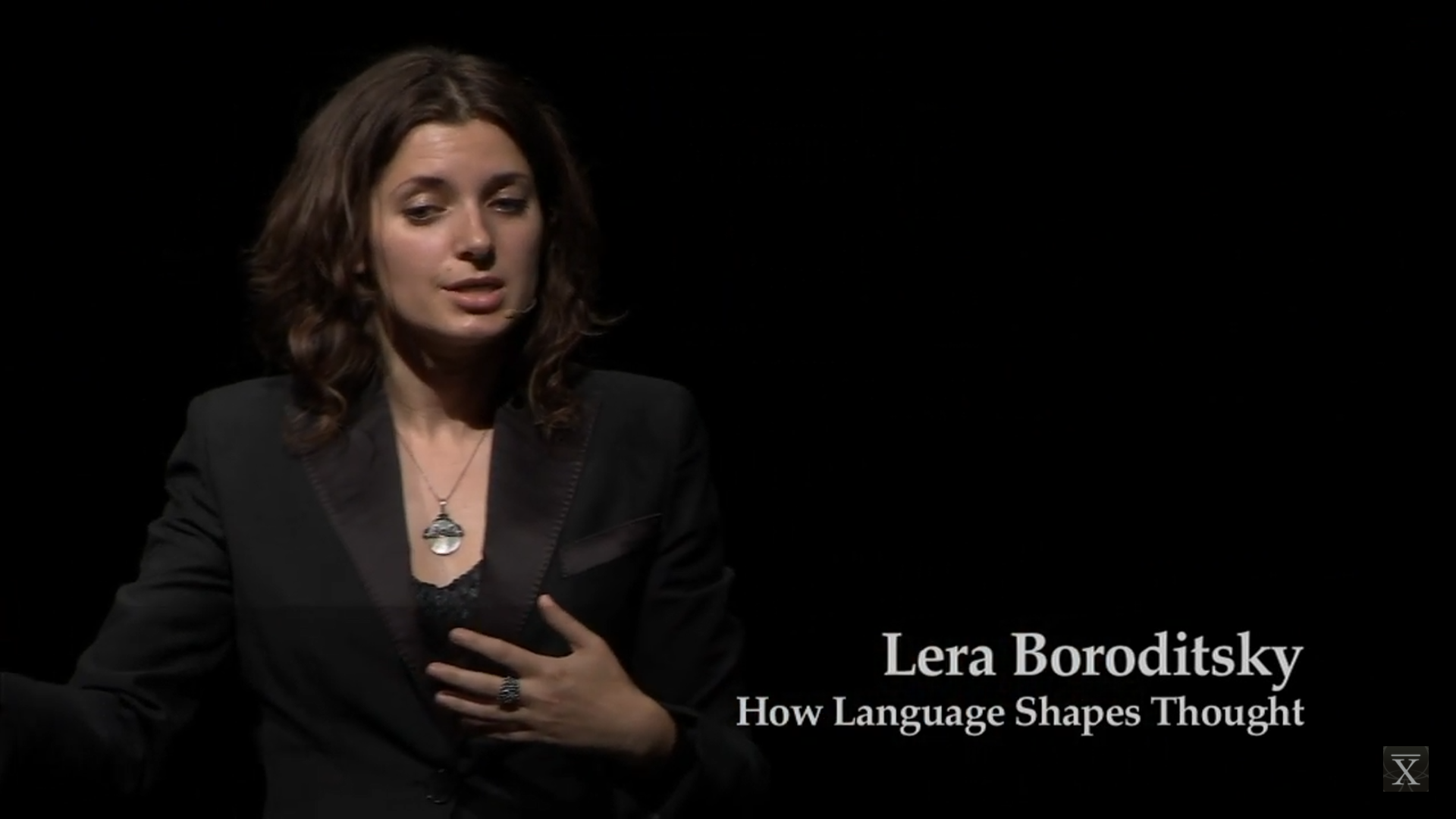
Encapsulated Universes
Past Long Now Speaker Lera Boroditsky explores how each of the 7,000 human languages provides an "alternate universe" of understanding, shaping our thought in profound ways.
In a recent conversation with Edge, Stanford Psychologist and former SALT speaker Lera Boroditsky explores intriguing – and still controversial – questions about the relationship between the language we speak, and the way we think about the world.
Weaving her thoughts together with examples from a variety of different languages, Boroditsky shows us that languages differ in the kind of contextual information they prioritize. Hebrew assigns everything in the world a gender, whereas Finnish does not. Russian verbs specify when an event took place, while Indonesian verbs are timeless. And where English sentences can be vague about the causality of an event, Japanese tends to be much more explicit about who did what. In other words, language shapes the things we notice about our environment.
“Think about it this way. We have 7,000 languages. Each of these languages encompasses a world-view, encompasses the ideas and predispositions and cognitive tools developed by thousands of years of people in that culture. Each one of those languages offers a whole encapsulated universe. So we have 7,000 parallel universes, some of them are quite similar to one another, and others are a lot more different.”
This does not mean that language dictates what we do and do not experience about our world – speakers of Finnish are still able to recognize the difference between men and women, and Indonesians know whether something happened in the past or the present. But it does mean that language is more than simply a way to convey meaning. In prioritizing certain pieces of information over others, language adds a certain color to our universe. In other words, meaning emerges from the fabric of language itself:
“Those interconnections between words are not simply the webbing on top of an otherwise pure logical knowledge system. Rather, in fact, meaning exists in the way that we use words; the patterns of word use create the system of meaning. There’s no getting away from language in getting to complex meanings.”
Exploring a new language, then, is truly a way to explore new worlds – and to celebrate the “flexibility and the ingenuity of the human mind.”
“The fact that we’re able to take so many different perspectives and create such an incredibly diverse set of ways of looking at the world, that is something first to be celebrated, but also something to learn from: flexibility and diversity are at the very heart of what makes us human and what makes us so smart. I think the more we understand how people are able to take all these different perspectives, and able to change the way they think, the better we’ll understand the nature of being human.”
Join our newsletter for the latest in long-term thinking
Subscribe